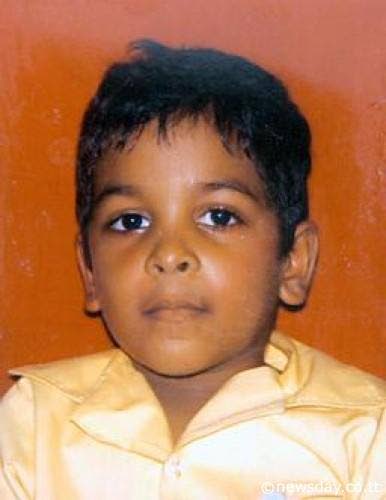DNA profile on Sean Luke's clothes matches that of accused

A DNA profile matching that of one of the men on trial for the murder of six-year-old Sean Luke was found on the underwear the boy was last seen wearing before he went missing close to his home in Orange Valley, Couva, in March 2006.
After two unsuccessful objections by accused Akeel Mitchell to the use of the DNA evidence by the prosecution in the case, the scientific evidence was led from Dr Maurice Aboud, laboratory director of the Caribbean Forensic Services laboratory – a private lab authorised to do DNA testing for the State – at the virtual trial on Friday.
Aboud, who performed tests for blood, semen and DNA on various exhibits seized by police in the case, spent most of Friday giving evidence on the tests he did and will return on Wednesday to be cross-examined by Mitchell’s attorneys.
His testimony came after a second objection to the evidence was raised and dismissed by Justice Lisa Ramsumair-Hinds who is presiding over Mitchell’s and his co-accused Richard Chatoo’s judge-only trial.
On Monday, the judge shot down an application by Mitchell to stay the indictment against him on the basis of the lengthy delay by the prosecution to disclose the DNA evidence, saying he could not receive a fair trial.
Much of Aboud’s evidence was scientific in nature as he explained the procedure of DNA testing and taking the attorneys and the judge through a chart he prepared to show the alleles or genes found in a person’s DNA makeup.
Aboud found blood on the inside of the boy’s underwear, in the lower crotch area and seminal fluid, or semen, in the back anal area of the underpants.
No spermatozoa was found in the area where the semen was found. A sample was taken for DNA analysis and he said, based on his findings, a partial foreign male DNA profile was obtained.
A foreign profile is one that does not belong to a victim.
“I came to the conclusion that Akeel Mitchell could not be excluded as a contributor to the partial profile.”
He did match Mitchell’s profile on spermatozoa found on the item of clothing.
Aboud said it was not uncommon to find a sperm sample in an exhibit 15 years-old or even longer.
Partial DNA profiles were obtained from a swab of the internal area of the underpants, but Aboud said it was insufficient for match purposes.
A foreign partial DNA profile was obtained from the sperm fraction and Aboud again said Mitchell’s profile could not be excluded from that profile.
He said profiles will be excluded if they did not share the same allele at two or more loci (the term used by scientists to show where on a chromosome a specific gene is.)
Aboud also screened the inside crotch area of Luke’s short pants for blood and semen and samples were taken for DNA analysis.
He said no DNA profile obtained and a partial profile from the sperm fraction was found but it was insufficient for match purposes.
He found partial profiles from inside the anal area of the pants, but said they, too, were insufficient for match purposes.
Analysis was also done on the penal and anal swabs taken during Luke’s autopsy, and Aboud said a partial foreign DNA profile was obtained but it, again, was insufficient to match.
During his testimony on his findings, Aboud said he found a mixed DNA profile found on the underwear consistent with three individuals.
He said the major DNA profile matched the child and while Mitchell’s profile could not be excluded as one of the minor contributors, the third was unaccounted for.
A complete male foreign DNA profile was obtained from the sperm fraction on the underpants and it matched Mitchell’s profile. Aboud also said he used an FBI DNA database for match probability using a Trinidadian allele population.
Questioned on his findings in relation to Chatoo, he said it did not mean that he could be included as a contributor but that it was insufficient to determine in any kind of capacity.
A partial DNA profile was found on the cane stalk he tested and said Luke was a major contributor to that finding.
Chatoo’s attorneys have not objected to the use of the DNA evidence in the case, although his lead attorney Evans Welch, did have issues with the wording of some of the questions posed to Aboud by prosecutor Anju Bhola as it related to his client.
Luke’s body was found on March 28, 2006, in a cane field close to his home. An autopsy revealed he died from internal injuries arising from being sodomised with a cane stalk.
They are represented by attorneys Mario Merritt, Evans Welch, Kirby Joseph, Randall Raphael, Kelston Pope and Gabriel Hernandez.
Prosecuting are state attorneys Sabrina Dougdeen-Jaglal, Anju Bhola and Sophia Sandy-Smith.

Comments
"DNA profile on Sean Luke’s clothes matches that of accused"